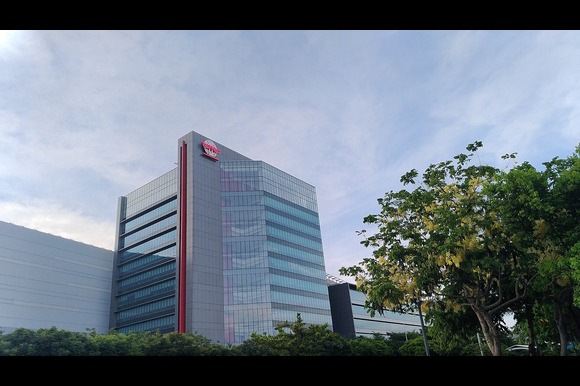Washington has withdrawn Taiwan Semiconductor Manufacturing Company’s (TSMC) authorization to freely export advanced technology from the United States to China, the chipmaker confirmed, a move that could complicate its operations in the world’s second-largest economy.
The decision threatens to disrupt TSMC’s manufacturing activities in China, where the company runs a facility producing older-generation semiconductors. Similar restrictions were imposed on South Korea’s Samsung and SK Hynix last week, making it more difficult for the firms to supply their Chinese factories with U.S.-origin technology.
In a statement to the BBC, TSMC said it was carefully reviewing the development and planned to engage with the U.S. government, while stressing that it remained “fully committed to ensuring the uninterrupted operation” of its Chinese plant. The chipmaker confirmed that Washington had informed it that the export authorization would be officially revoked before the end of the year.
The BBC has sought comment from the U.S. Commerce Department, which oversees trade and export controls.
TSMC, the world’s leading semiconductor manufacturer, produces chips for a wide range of technology products, including those used by major clients such as Nvidia.
The U.S. government has imposed sweeping restrictions on the export of advanced semiconductor technology to China as part of broader efforts to protect its economic and national security interests. Initially, however, Washington granted temporary waivers to certain global technology firms, allowing them to continue shipments.
It remains uncertain how quickly new licenses might be approved under the tighter system, raising the prospect of delayed shipments.
According to investment specialist Raymond Woo of Kyoto University Innovation Capital, the policy shift under the Trump administration could increase both the cost and complexity of shipments, as U.S. suppliers will now need to apply for individual licenses before sending products to Chinese factories.
Woo noted that the change could force Chinese customers to increasingly rely on domestic alternatives, even if they remain technologically several generations behind global competitors. However, this dynamic could also spur greater innovation in China, as local firms push existing equipment to its limits in areas where top-end performance is less critical.
Despite the potential complications, the overall effect on TSMC’s business is expected to be modest. Woo emphasized that the company’s only Chinese plant, located in Nanjing, manufactures legacy chips that account for only a small fraction of TSMC’s global revenue.






